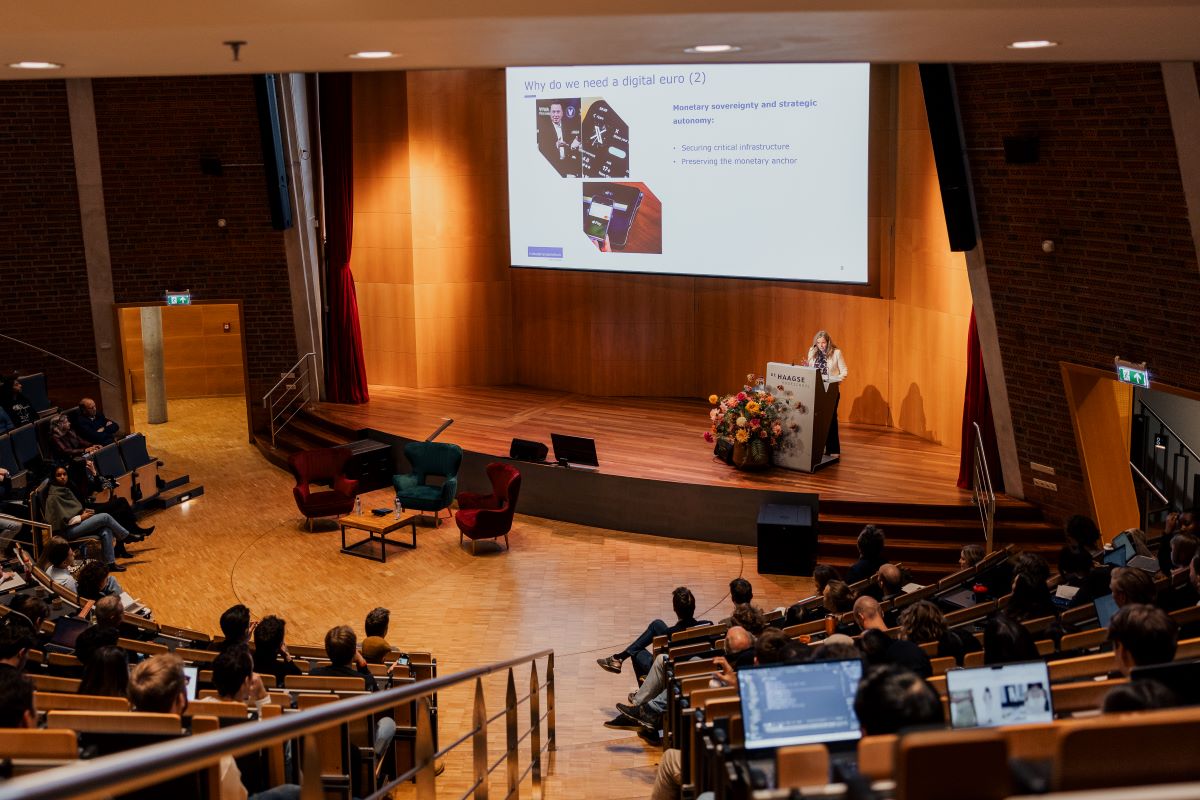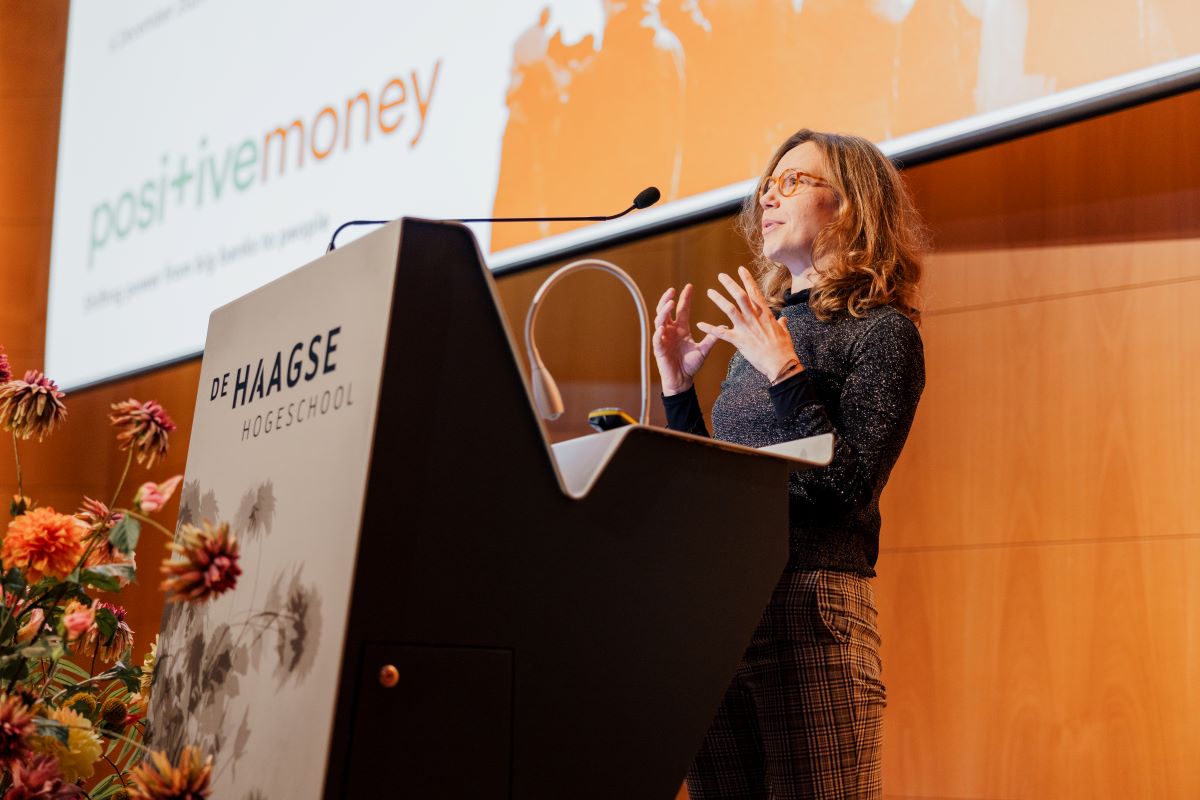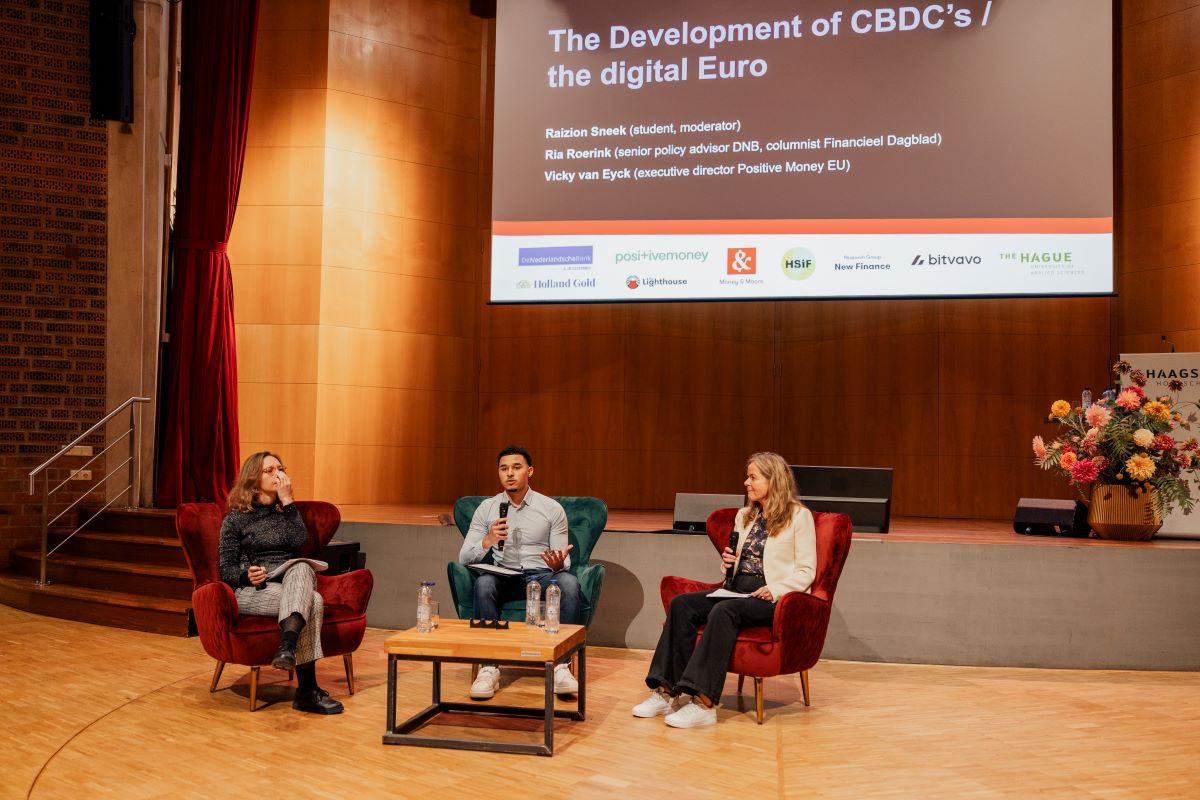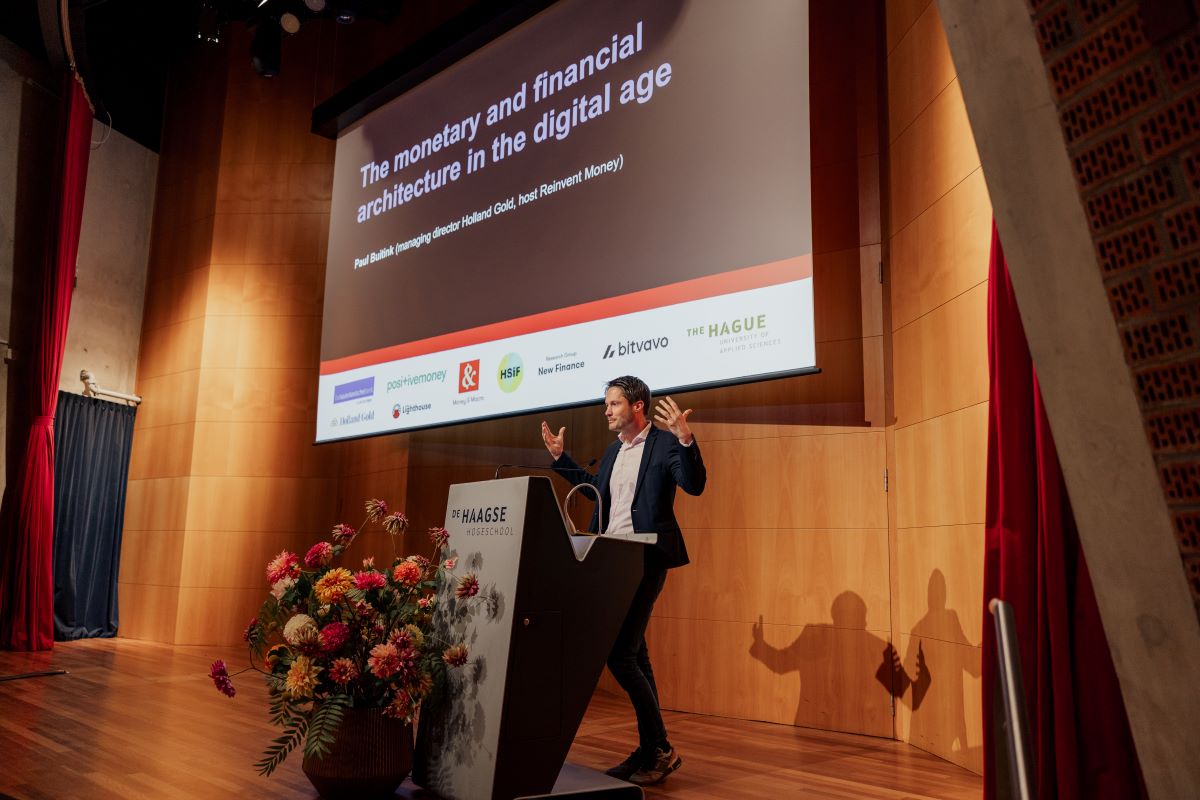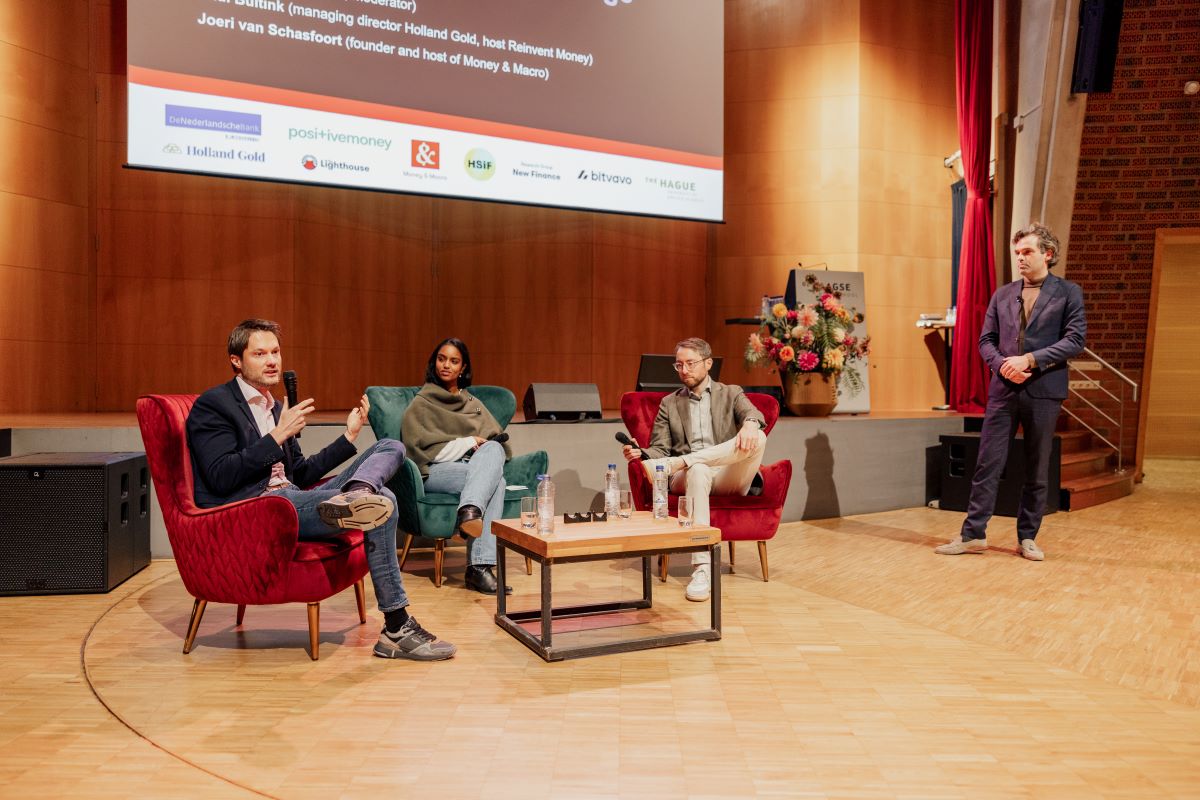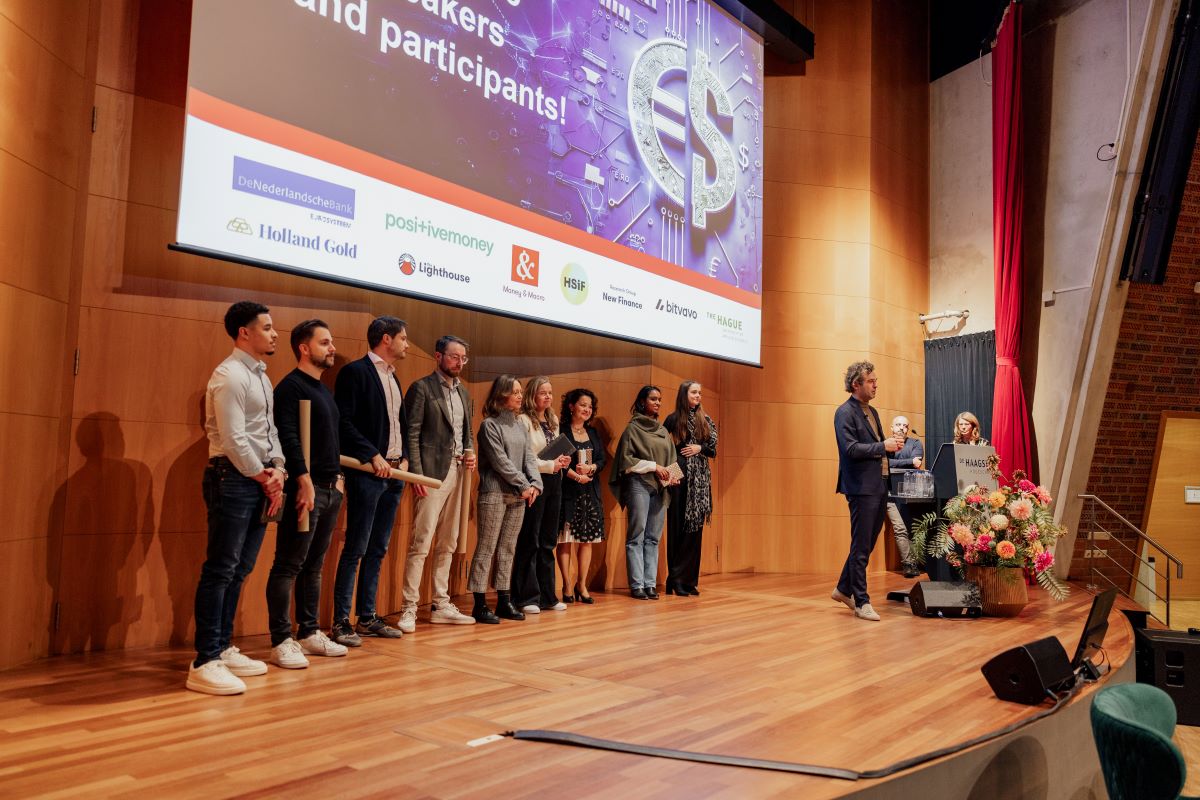From Cash to Code: The future of digital money and its impact on the financial system
12 December 2024
The event From Cash to Code on 6 December 2024 explored the impact of crypto assets and digital central bank currencies on the future of the financial system.
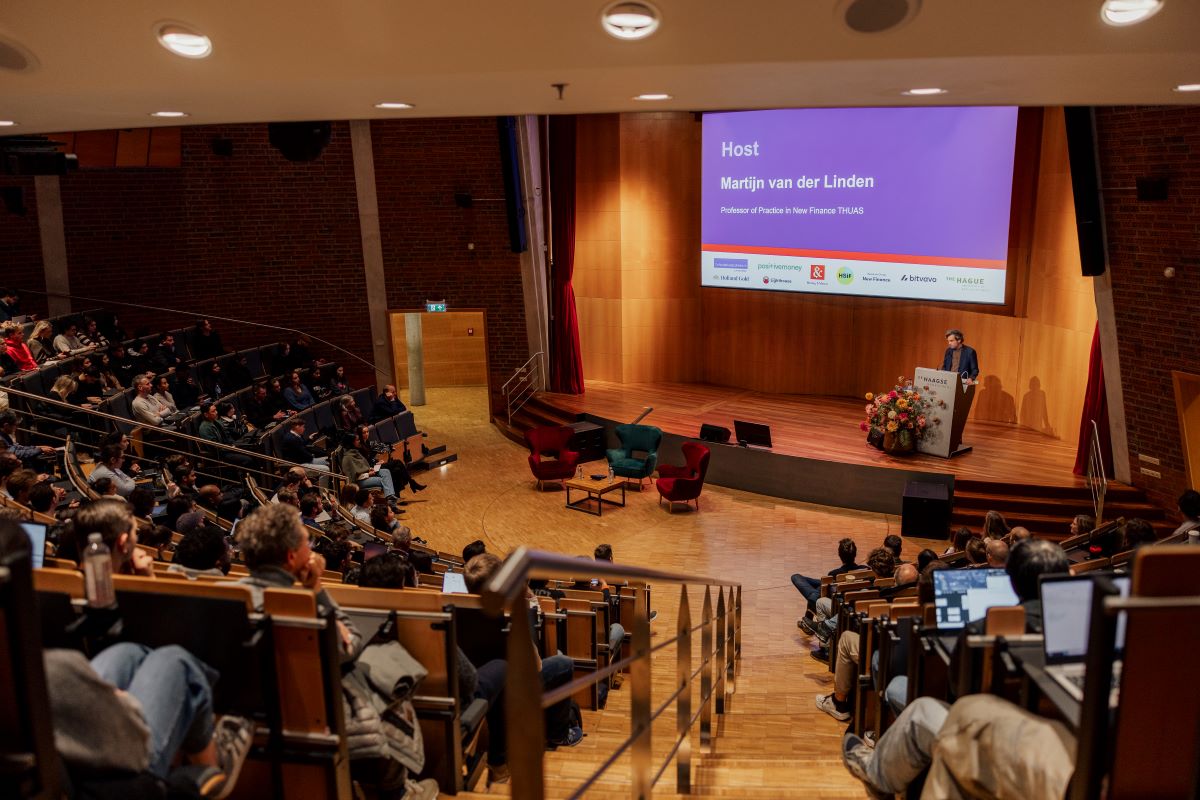
The financial world is rapidly evolving, with the rise of crypto-assets and the development of Central Bank Digital Currencies as key trends. But what do these innovations mean for the future of our financial system? This question took center stage at the event From Cash to Code, organized by the research group New Finance at The Hague University of Applied Sciences on December 6, 2024.
During this fifth event in a series on the future of digital money, experts, researchers, and students gathered to discuss the impact of digital currencies on the economy, society, and the global financial system. Representing The Hague University of Applied Sciences, Deborah Mevissen, Director of the Faculty of Business, Finance & Management, and Martijn van der Linden, Professor of New Finance, opened the event. The discussions were divided into three themes:
- The digital euro
- Crypto-assets and regulation
- Digital currencies and the global monetary system
The digital euro
The first session focused on the digital euro and its potential impact on the financial system. Ria Roerink from De Nederlandsche Bank emphasized the digital euro's crucial role in preserving public money in the digital age. She argued that the digital euro is not just a tool to strengthen Europe’s monetary sovereignty but also a key instrument to protect its strategic autonomy. Roerink also discussed the challenges for commercial banks, including the potential effects on their liquidity and the need for strong political support to ensure the adoption of the digital euro.
Vicky van Eyck from Positive Money EU followed with a discussion on the essential design choices for the digital euro. She raised fundamental questions about privacy, costs, the role of intermediaries, and the introduction of limits on balances and interest payments. Van Eyck expressed concerns about the significant influence of the banking sector on the design process and shared an update on the progress of legislation regarding the digital euro.
The session concluded with a panel discussion moderated by International Business student Raizion Sneek, in which participants explored the opportunities and risks associated with the digital euro.
Regulation of crypto-assets
The second session addressed the regulation of crypto-assets within the EU. Aleksandra Asscheman, researcher at the New Finance research group, explained how the new Markets in Crypto-Assets (MiCA) regulation aims to foster trust in the crypto market and promote fairness. She explained how MiCA seeks to mitigate risks such as consumer harm and financial instability while also acknowledging challenges like the high compliance costs for market participants.
Remy van der Nagel from Bitvavo shared his insights on the latest trends in the crypto sector, including faster payments, improved user experiences, and growing interest from institutional investors.
Meghan Borkus, a student International and European Law, moderated the closing panel discussion, where experts debated the future of crypto-assets within the new regulatory framework.
Digital currencies and the global monetary system
The final session examined the global impact of digital currencies. Paul Buitink from Holland Gold advocated for broader societal discussions about the role of money. He argued that the eurozone is not an optimal currency area and suggested that the Netherlands might need to reconsider its use of the euro.
Joeri Schasfoort from Money & Macro analyzed how digital currencies and crypto-assets could challenge the dominance of traditional currencies like the US dollar. He also discussed the balance between flexibility and stability in various financial systems.
International Business student Shakti Fakira wrapped up the session with a dynamic panel discussion, showcasing diverse perspectives on the future of the global financial system.
Want to learn more?
With From Cash to Code, The Hague University of Applied Sciences provided a platform for inspiring insights and discussions about the future of digital money. The New Finance research group looks forward to the next edition in spring 2025, where this topic will once again take center stage. For more information about the event or the research of the New Finance group, please contact dr, Martijn van der Linden, Professor New Finance.
Did you miss this event?
If you’d like to view the presentations from the event, please see below:
- Ria Roerink van De Nederlandsche Bank
- Vicky van Eyck van Positive Money EU
- Aleksandra Asscheman van het lectoraat New Finance, De Haagse Hogeschool
- Joeri Schasfoort van Money & Macro
Centre of Expertise Digital Operations & Finance
The New Finance research group is one of seven research groups within the Centre of Expertise Digital Operations & Finance. We conduct applied research and use digital technology to work towards a just economy. For us, that means an economy with a small ecological footprint—one that ensures a future that is inclusive, sustainable, and resilient.
